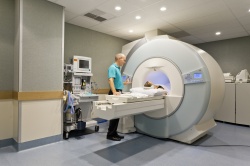Refurbishment: a DITTA contribution to circular economy
DITTA, the Global Diagnostic Imaging, Healthcare IT and Radiation Therapy Trade Association, proudly launches a new brochure “Refurbishment of medical devices – Contribution to Circular Economy” in 5 Global languages: English, Japanese, French, Spanish and Chinese.

Back in 2007 COCIR, the European Trade Association representing the medical imaging, radiotheraphy, health ICT and electromedical industries, developed the concept of Good Refurbishment Practice (GRP) on how to efficiently and safely refurbish medical equipment.
The process, articulated in 5 key steps, is aimed at extending equipment’s life by restoring its performances and safety (as good as new) while reducing environmental impact and contributing to the circular economy.
Based on positive feedback by regulators and other key stakeholders around the globe, in June 2009 COCIR published a new version of this concept.
Since then, GRP was endorsed by the Medical Imaging & Technology Alliance (MITA) in the USA and the Japan Industries Association of Radiological Systems (JIRA), both members of DITTA.
The DITTA brochure launched today illustrates the importance of refurbishment of medical devices and parts in a circular economy and how it contributes to the 3 pillars of sustainability: (1) environment (saving energy and materials), (2) economy (contributing to cost efficiency of healthcare systems) and (3) society (improving the quality of healthcare).
Nicole Denjoy, DITTA Vice-Chair said, “Our initiative is embedded in a strategy towards circular economy. Refurbishment of medical equipment helps save energy and resources while preventing unnecessary waste. At the same time it allows access to affordable quality equipment. Our publication aims at educating stakeholders including healthcare providers, and institutions worldwide on the importance of a robust and sustainable global health system. DITTA industry is highly innovative and its member companies are frontrunners in minimizing the environmental impact”.
Source: DITTA
17.09.2015





